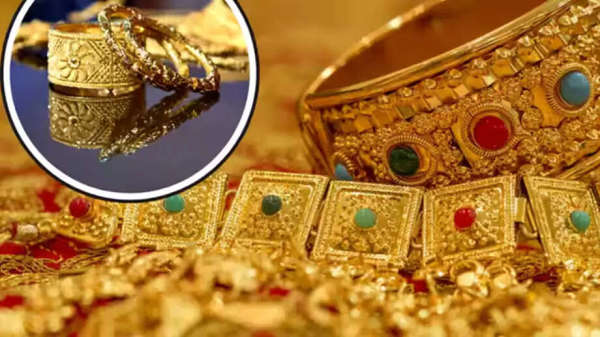
In India, gold is not just a precious metal but an investment linked to emotions and traditions. It has been passed on from generation to generation in families. When you inherit gold from your parents, it not only has economic importance but also an emotional attachment. The good thing is that there is no immediate tax liability on inherited gold. The actual tax is applicable when you sell this gold, gift it, or invest it further.
There is no income tax on inherited gold.
If you have inherited gold, it is not considered income. That is, you do not have to pay tax on it as soon as it comes into your hands. According to the Income Tax Act, gold received through a will, gift deed, or succession certificate is tax-free. However, it is important to keep these documents safe to prove the source of gold when selling or declaring it in the future.
Capital gains tax is applicable on the sale of gold.
The actual tax liability begins when you sell gold. In this case, capital gains tax is applicable. In this case, the cost price is considered to be the same as what your parents (or the original buyer) paid when buying the gold, not when you inherited it. If the gold was purchased before April 1, 2001, then the fair market value at that time will be considered as the cost. If the holding period is less than three years, then short-term capital gains tax will be applicable. If the holding period is more than three years, then long-term capital gains tax will be applicable.
Benefit of indexation
The biggest way to reduce tax on long-term capital gains is the indexation benefit. Through indexation, the cost of gold is revalued according to the inflation rate. The advantage of this is that less tax has to be paid while selling old gold. For example, if your parents bought gold for Rs 1 lakh 20 years ago, after indexation, it will be assumed that its cost was much higher. Thus, the taxable gain is reduced considerably.
Wealth tax is no longer applicable.
Earlier, wealth tax was to be paid if you had more than a certain amount of gold. But this tax was abolished in 2015. This means that there is no additional annual tax to be paid for just owning gold. Tax will be levied only when you sell the gold, convert it into cash, or convert it into some other asset.
Difference between a gift and an inheritance
If your parents gift you gold during your lifetime, it is still exempt from income tax because gifts received from close relatives are not taxed. But if this gold is received from a non-relative and its value is more than ₹ 50,000, then it will be considered as your income and tax will be levied. Whereas inheritance (gold inherited from parents) is always tax-free.
Importance of documentation
It is very important to have proper documentation on inherited gold. This can include a will, gift deed, bill of purchase, or succession certificate. These not only prove your ownership but also form the basis for capital gain calculation when selling gold in the future. If there are no documents, then the valuation may have to be done by a valuer approved by the Income Tax Department.
Planning for future generations
Inherited gold is often a mix of emotions and financial planning. It should be handled keeping in mind both family tradition and future needs.
By making a will
By making a nomination
By making a family agreement
You can pass on the gold to your heirs peacefully. This will not only prevent family disputes but will also protect both the financial and emotional value of the gold.
Disclaimer: This content has been sourced and edited from Zee Business. While we have made modifications for clarity and presentation, the original content belongs to its respective authors and website. We do not claim ownership of the content.
-
Lily Collins’ figure sparks online debate

-
Is it upset with hiccups again and again? Follow these domestic tricks and get immediate relief

-
4 Zodiac Signs Enter A Healing New Era Starting On September 16, 2025

-
Vietnam’s passport drops 4 places on global ranking

-
iPhone 17 Gets Record 5 Lakh Pre-Orders In India In 48 Hours
